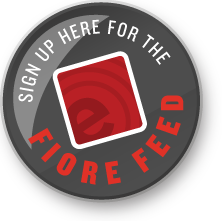How to Transition from Academic Writing to Blogging
 As I finish up my editing internship this summer and approach the last semester of my undergraduate career at Florida State University, I can’t help but think about the drastic differences between the writing styles and approaches I have implemented. Academic writing centers on a thesis statement, research and formal prose, while blogging focuses on getting your thoughts down in a coherent, informal manner and using your personal experiences. Here are a few ways to make the transition from writing a research paper to writing an informal blog post.
As I finish up my editing internship this summer and approach the last semester of my undergraduate career at Florida State University, I can’t help but think about the drastic differences between the writing styles and approaches I have implemented. Academic writing centers on a thesis statement, research and formal prose, while blogging focuses on getting your thoughts down in a coherent, informal manner and using your personal experiences. Here are a few ways to make the transition from writing a research paper to writing an informal blog post.
No. 1: Be Practical
While a solid, well-written academic paper might be informative and insightful, it is purely informational to the reader. The reader can walk away with more knowledge on a topic, but the knowledge gained can’t be applied to their life. Practicality is one of the most important objectives in writing a blog. As a writer, you should want your readers to take a piece of information from the blog post and apply it to their lives. The information doesn’t necessarily have to be in the form of advice but may simply be something like a short story revealing a personal experience.
No. 2: Be Relatable
How do we connect with people? We relate to them. Whether it’s similar interests, beliefs or lifestyles, people feel closer to those who they can relate to. Try to tie in a pop culture reference or life situation into your content. As a reader, I become more engaged when I read something that I’ve experience or been through. For example, the other day I read a blog post that was comparing ideas of happiness through the words of St. Augustine and Pharrell’s hit song “Happy.” Though I wasn’t very familiar with St. Augustine’s quotes, I knew the words of the “Happy” chorus because it’s being played everywhere. It related to the reader because I knew the song and its lyrics.
No. 3: Be Understandable
 There’s nothing I dislike more than reading something I don’t understand or can’t grasp. When writing a blog, there’s no reason to use unnecessary jargon that goes over people’s heads. If you’re using words that aren’t common, then define them or explain their context. You should be able to express your thoughts and get your point across by using simple language; you don’t have to prove anything to your readers or impress them with your scholarliness. According to The Literacy Problem, the average reading level of an adult American is at the eighth- to ninth-grade level. Writing at this level using simple language ensures that a wider audience will be able—and willing–to understand your post. Readers want content they can easily digest, especially when a vast amount of information is just a few clicks away.
There’s nothing I dislike more than reading something I don’t understand or can’t grasp. When writing a blog, there’s no reason to use unnecessary jargon that goes over people’s heads. If you’re using words that aren’t common, then define them or explain their context. You should be able to express your thoughts and get your point across by using simple language; you don’t have to prove anything to your readers or impress them with your scholarliness. According to The Literacy Problem, the average reading level of an adult American is at the eighth- to ninth-grade level. Writing at this level using simple language ensures that a wider audience will be able—and willing–to understand your post. Readers want content they can easily digest, especially when a vast amount of information is just a few clicks away.
No. 4: Be Straightforward
Stories are great for blogging, but don’t saturate your writing with them. Use examples sparingly and only to support your original content and main points. Readers respect writers who can be open and honest, but don’t give in to the temptation to overdo it with stories or metaphors. Your readers may appreciate a little color, but they want you to get to the point.
I hope these suggestions will help you in starting a new blog or making the transition from college to the workplace. Blogging allows so much freedom to say what you want to say, and nothing should stop you from writing. The more you write, the more you’ll be able to tailor your content to your reader’s tastes.





